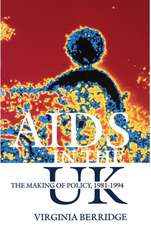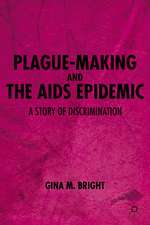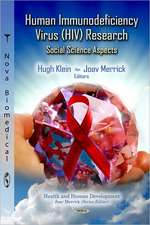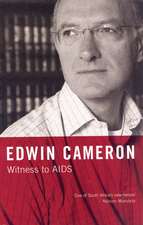Eating Spring Rice – The Cultural Politics of AIDS in Southwest China
Autor Sandra Teresa Hydeen Limba Engleză Paperback – 19 feb 2007
Hyde approaches HIV/AIDS as a study of the conceptualization and the circulation of a disease across boundaries that requires different kinds of anthropological thinking and methods. She focuses on "everyday AIDS practices" to examine the links between the material and the discursive representations of HIV/AIDS. This book illustrates how representatives of the Chinese government singled out a former kingdom of Thailand, Sipsongpanna, and its indigenous ethnic group, the Tai-Le, as carriers of HIV due to a history of prejudice and stigma, and to the geography of the borderlands. Hyde poses questions about the cultural politics of epidemics, state-society relations, Han and non-Han ethnic dynamics, and the rise of an AIDS public health bureaucracy in the post-reform era.
Preț: 275.22 lei
Nou
Puncte Express: 413
Preț estimativ în valută:
52.67€ • 57.19$ • 44.24£
52.67€ • 57.19$ • 44.24£
Carte tipărită la comandă
Livrare economică 23 aprilie-07 mai
Preluare comenzi: 021 569.72.76
Specificații
ISBN-13: 9780520247154
ISBN-10: 0520247159
Pagini: 272
Dimensiuni: 154 x 227 x 18 mm
Greutate: 0.41 kg
Ediția:1
Editura: University of California Press
ISBN-10: 0520247159
Pagini: 272
Dimensiuni: 154 x 227 x 18 mm
Greutate: 0.41 kg
Ediția:1
Editura: University of California Press
Descriere
An ethnographic study of HIV/AIDS in China. It chronicles the rise of the HIV epidemic from the years prior to the Chinese government's acknowledgment of this public health crisis to post-reform thinking about infectious-disease management.














